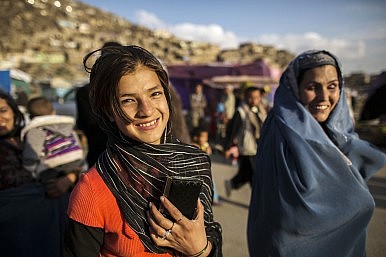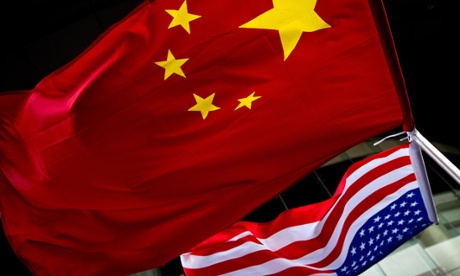 By Dan Balz and Philip Rucker
By Dan Balz and Philip Rucker
Eleven Iowa Democratic activists had been talking about the state of the country, the politics of 2016 and a prospective presidential campaign by Hillary Rodham Clinton one recent night when they were asked two questions.
The first was who they would invite to a dinner party if they could pick from among four prominent Democrats. Six picked President Obama. Two each named Vice President Biden and former president Bill Clinton. Just one said they would invite Hillary Clinton.
Next they were asked who among that same group they would call first if they faced a family emergency. The response was overwhelming. Seven of the 11 said they would want Hillary Clinton at their side.
The responses crystallized nearly two hours of conversation and captured the range of Democratic sentiment about the politician whose possible candidacy is eagerly anticipated by those in her party. But a separate conversation with a smaller group of Republican activists highlighted the degree to which she remains a polarizing figure.
No state frustrated Clinton more during her 2008 campaign than Iowa, which launched Obama, then an Illinois senator, and dealt her a demoralizing setback with her third-place finish in the nation’s first caucuses.
Today, Iowa activists see her through a new lens. Democrats, including those who backed Obama in 2008, offer strong encouragement.
When Clinton ran the first time, Kay Hale, 62, a school bus driver, worried that Clinton “cannot bring the country together” and backed then-Sen. Christopher J. Dodd (Conn.) for president. Now she says of Clinton, “I think we’re ready for her now. . . . I think she’s proved herself. She’s earned it.”
At the same time, these Democratic activists offered cautionary warnings, saying Clinton must run a different kind of campaign and show a warmer side of her personality if she hopes to be successful.
“I think she’s going to have trouble with the middle class,” said Charles Crawley, 60, a technical writer. “She went to Wellesley College, Yale Law School, and from that point on she’s been in the upper class. She may have middle-class parents, but that was a long time ago.”
The observations in this article come from two sessions with Iowa activists. The first included the 11 Democrats from Linn County, around Cedar Rapids. The second was with a group of six mostly establishment Republicans in suburban West Des Moines, part of Dallas County.
Their opinions and observations are their own and are not meant to be representative of the broader electorate or a scientific sample. But because they are among the most politically engaged of Iowans, their views provide an early look at perceptions of Clinton in a state that brought her disappointment in 2008.
Of the 11 Democrats, one supported Clinton in 2008, while six backed Obama. But ask them today for a brief description of Clinton, and the responses are all positive. “Seasoned.” “Capable.” “Smart.” “Strong.” “Competent.” “Amazing.” “Intelligent.” “Experienced.” “Decisive.” “Tested.”
When Clinton ran in 2008, she had two big liabilities in Iowa. One was her 2002 vote authorizing President George W. Bush to go to war in Iraq, a vote she never truly recanted. The vote alienated the state’s liberal activists and put her at odds with Obama.
Among the Linn County Democrats, the Iraq issue has faded in importance. “I think some Democrats in Iowa may have put her in the penalty box eight years ago because of Iraq,” said Nate Willems, 34, a labor lawyer. “We’ve moved past that. . . . Time heals lots of wounds.”
On policy issues, these Democrats offered little to suggest that they fear that Clinton would be too hawkish for their tastes or that her economic ideas would be too centrist. Many expressed deep concerns about the growing divide between rich and poor in the country, but said they believed she would share that concern, even if she did not use the same kind of fiery rhetoric of someone such as Sen. Elizabeth Warren (D-Mass.).
The other problem was a perception that she and her campaign entourage were aloof, distant and lacked a common touch. “Bad manners,” said Libby Slappey, 62, who is a fundraiser. That problem still concerned many of those around the table.
One after another expressed disgruntlement with the way that Clinton and her campaign conducted themselves in 2007 and 2008. “People felt like her campaign thought they had a sense of entitlement because they were the Clintons,” said Gretchen Lawyer, 41, a teacher and Obama volunteer.
Dale Todd, 57, a developer of affordable housing, said, “They just left a bad taste in a lot of people’s mouth. The BlackBerry was more important than the contact with [people]. We would be sitting right here and they would be working their BlackBerry and you just felt like you weren’t getting through.”
“They were just going through the motions,” Hale said.
“It was like, we’re here and we can’t wait until we get out of here,” Todd responded.
The consensus among this group was that the Obama campaign outhustled Clinton in Iowa. “She was left in the dust by the organization of the Obama campaign, and I truly believe it emanated from the top,” Slappey said. “I truly believe that Barack Obama said to the next level, this is how I want my campaign to run, and that level said it to the next level. And it was a beautiful Amway kind of thing.”
Mike Robinson, 51, a registered nurse and former Linn County Democratic chair, defended Clinton. “I found her to be very genial. I met her on a few different occasions. I was very depressed, disappointed, when she was portrayed otherwise. She’s very kind.”
These Democrats may eagerly await Clinton’s candidacy, but all had advice for her about how to run a different campaign in 2016 than she ran in 2008.
“Come shake our hands,” said Kathy Robinson, 51, a property manager who was a Clinton supporter in 2008 when she lived in Illinois. “Talk to us. Ask us our feelings and ask our opinions. But come here more than once. Don’t ignore Iowa.”
Lawyer urged Clinton to “get in touch with regular people.” She noted that when Obama started out in Iowa, he and Michelle Obama were still paying off their student loans. “How long has it been since she [Clinton] was a normal person outside of public life?” she said, adding, “When was the last time she drove a car? I see that as a liability she needs to think about.”
Bret Nilles, 55, the current Linn County Democratic chair and a finance manager, said Obama’s campaign was more open. “Hillary’s campaign was more controlled,” said Nilles, who backed Clinton that year. “There was a sense that they were going to win it, so all they had to do was make the rounds.”
Laura Bell, 54, an accounts manager who supported then-Rep. Dennis J. Kucinich (Ohio) in 2008, said, “I would want to encourage her to remember that there are people in this party [whose] opinions are closer to Bernie Sanders and Elizabeth Warren and do not forget about us.”
Todd said Clinton should “leave the consultants at home.” He recalled her first campaign: “When she would walk in the room and the entourage was larger than the group you’re meeting with, that didn’t go over well. But the reality is, these are the Clintons and it’s going to be tough to do what we are sort of used to.”
Roy Porterfield, 63, an automotive service manager, defended Clinton against the perception that she holds herself above others. “She came from perfectly ordinary beginnings,” he said. “She didn’t grow up a Bush or a Rockefeller or whatever. I don’t think she’s lacking a common touch. . . . I see her as a perfectly good, solid, honest, ordinary citizen who just happens to have a brilliant mind and vast, useful political experience.”
The Republicans from Dallas County see Clinton as the inevitable Democratic nominee and as a worthy opponent who has bolstered her résumé since her first campaign for the White House. But when they were asked to offer a word to describe her, their answers reflected a sharply negative view of the former secretary of state, senator and first lady. “Political.” “Politician.” “Schemer.” “Tactical.” “Manipulative.” Only one offered a positive description: “Strong.”
Those in the group questioned Clinton’s honesty and said they did not trust her. They also see her as vulnerable on issues ranging from Benghazi to health care, citing her role in shaping her husband’s failed effort to reform the health-care system when he was president.
“She’s tenacious, but she’s manipulative,” said Lisa Schneider, 41, who works at the governor’s residence in Des Moines as a communications and events coordinator. “I don’t think she would do right by the country. She has her own agenda, and she’s going to do whatever she wants to get there.”
Christina Taylor, 43, a physician, said, “I think there’s a trust issue with her. I think it’s a truthfulness or candor issue. We all say she’s very politically astute, politically savvy, she’s tactical. I think people have an undertow of wondering not only with Benghazi but even in her previous past — everything is to get the win and so, can you trust that she is being honest? I think people will continually question, is she telling me the truth? And you won’t know.”
“I think she would be polarizing, as polarizing as Obama has been,” added Charles Schneider, a state senator and Lisa’s husband.
But Taylor acknowledged the potency of a Clinton candidacy. “I think women want a strong woman,” she said. “They’re willing to be a Hillary supporter because she’s the only one they’ve got to grab onto. Which is kind of sad, but I think that’s true.”
These Republicans applauded House Republicans for their decision to launch another investigation of what happened in Benghazi in September 2012 and said the issue will not recede if Clinton is a candidate.
“She was in charge of the State Department, and I think it’s not necessarily politics. I think the American people deserve to know the truth,” said Chad Airhart, 37, the Dallas County recorder.
Among the Democrats, Clinton engendered respect and admiration, but not the kind of excitement that surrounded Obama in his first campaign. When they were asked to name the most exciting person in their party, nine people were mentioned, but no one said Clinton. “I’m borderline enthusiastic already,” Porterfield said. “But do I think she’s exciting? No, not really.”
There was little appetite for a Biden campaign in 2016, though he is well liked in the state. On the question of whether a primary contest would be good for Clinton, there was division.
Todd said he hoped the Democrats could avoid a serious nomination contest in order to be better prepared for what he said would be “nuclear war” in the general election. “You need a powerhouse like a Clinton to be able to stand up to these forces, the Koch brothers, the way politics has changed from 2008.”
But Crawley said that even if Clinton faces no serious competition for the nomination, “she needs to consider herself the underdog. . . . If she comes in prom queen, this is a cakewalk to the presidency, the thing I’m worried about . . . is we’ve got a candidate over here who’s not being tested in some way. I think that can work against her in a general election.”


















